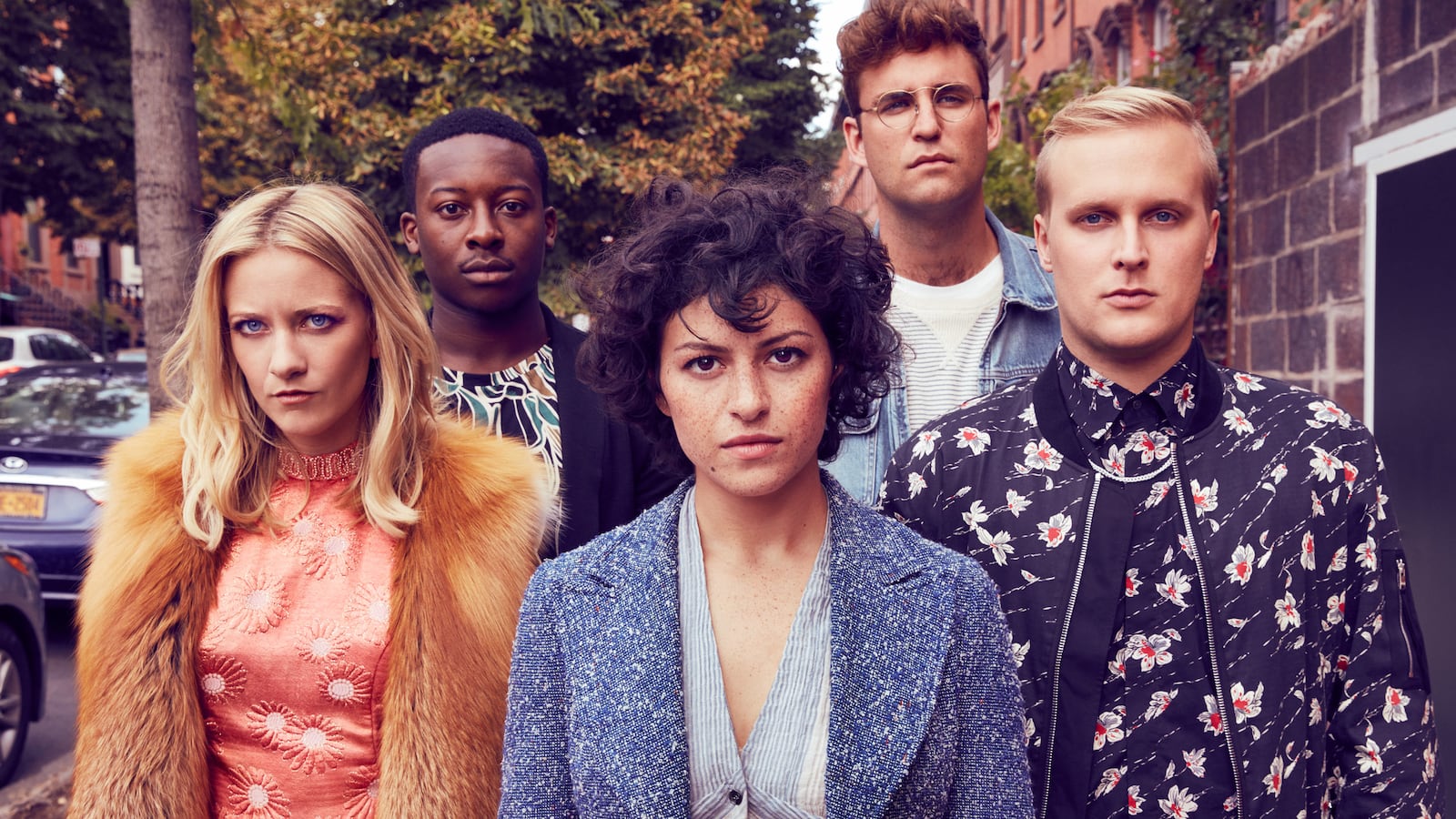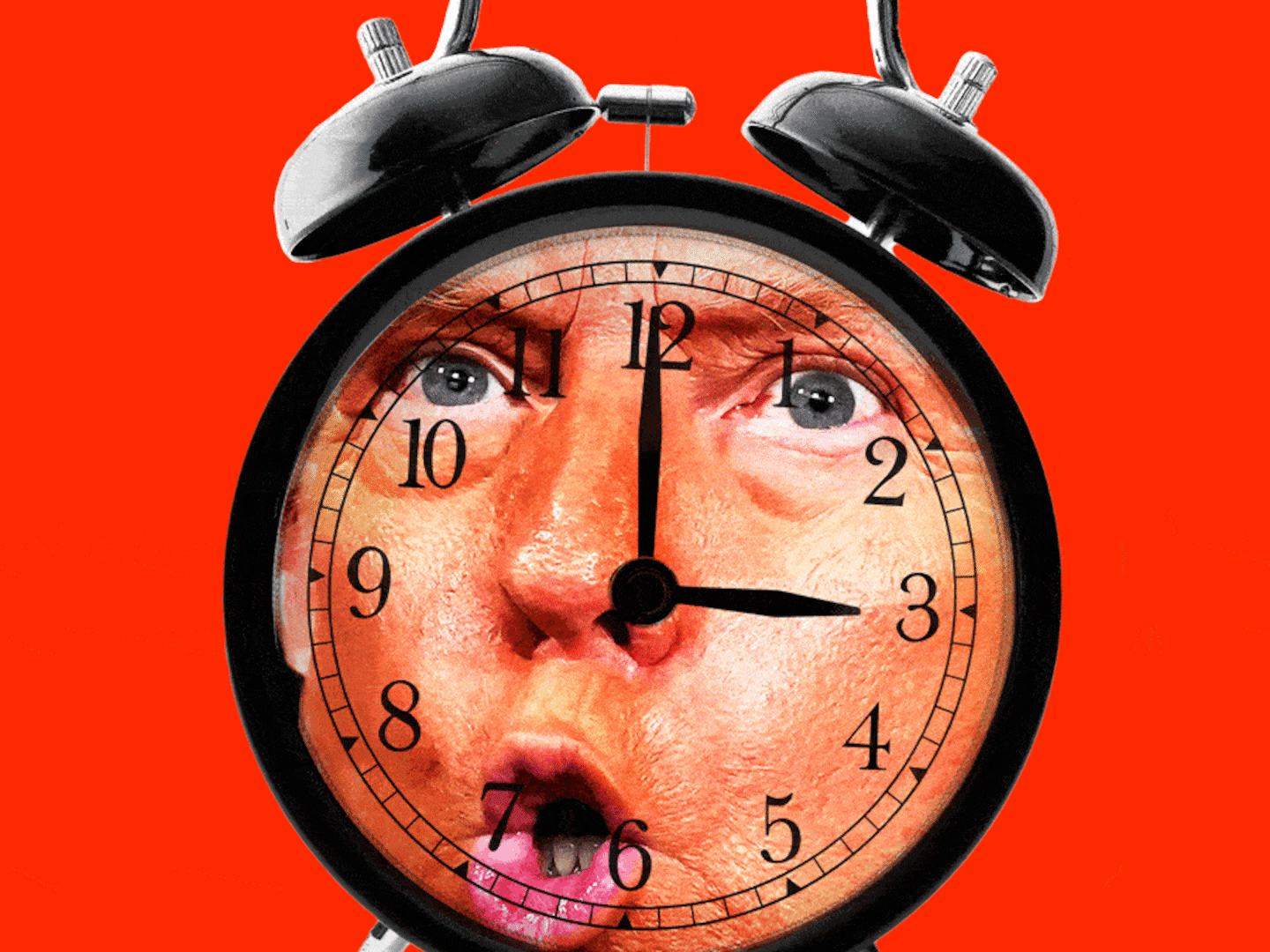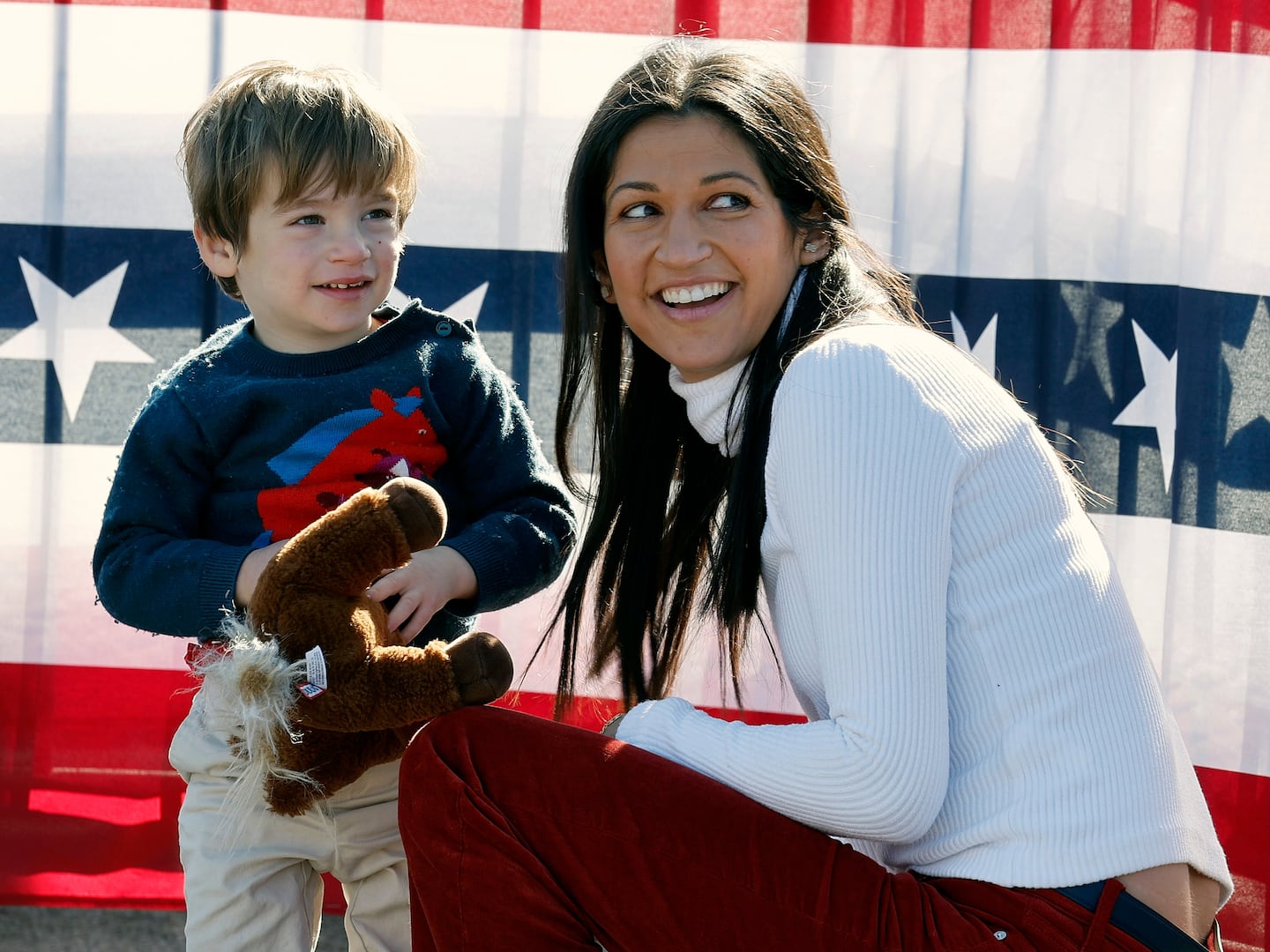Like Netflix’s Stranger Things before it, the new comedy series Search Party seemingly came out of nowhere this fall. TBS decided to drop all 10 episodes of the show on its streaming platforms over Thanksgiving weekend and it quickly became the perfect anecdote for anyone who wanted to avoid talking politics with their extended family — and was never that into Gilmore Girls.
In a media environment where projects are teased and promoted to death long before they premiere, Search Party embraced its mysterious, Serial-esque vibe by letting its audience discover what it was all about at their own pace. And with each episode ending in a cliffhanger, the show’s creators managed to create the first binge-worthy comedy, leaving viewers both laughing hysterically and wanting to know what comes next.
The idea for a show that could accomplish both of these ambitious goals originated with the indie filmmakers Sarah-Violet Bliss and Charles Rogers, who made the underrated 2014 movie Fort Tilden, and their new collaborator Michael Showalter, who also happened to be their teacher at NYU’s film school.
As Showalter tells The Daily Beast by phone from the set of Wet Hot American Summer: 10 Years Later, which will premiere on Netflix next year, he was so impressed with his students that he invited them to write on the first iteration of that cult-classic’s streaming reboot a few years ago. After that experience, they decided to develop their own series, which eventually turned into Search Party.
In the new show, Arrested Development’s Alia Shawkat stars as Dory, a Brooklyn millennial who is struggling to figure out what she wants to do with her life. When a vague acquaintance from college goes missing, she decides to drag her boyfriend Drew (John Reynolds, who played Chief Jim Hopper’s goofy sidekick in Stranger Things) and two friends (the hilariously self-obsessed John Early and Meredith Hagner) into her quest to solve the case.
At once plot-driven mystery and brilliant satire of millennial culture, Search Party also explores a depth in all four of its main characters that is far more complicated than anything found in some of Showalter’s earlier sketch-comedy work on shows like The State and Stella. That it manages to be laugh-out-loud funny at the same time is a feat that’s unrivaled on television right now.
Below is an edited and condensed version of our conversation.
With Search Party, you’ve managed to create what might be the first truly bingeable comedy, where it’s not only hilarious but you want to see what happens next. Was that combination always part of the idea for the show?
Yeah, I mean, we all in the writing of the show kind of brought references of our own, movies, books or whatever, that we all loved, that had that combination of being both genuinely scary, suspenseful and plot-driven but at the same time equally as much a comedy and satirical. So we were talking about Fargo or David Lynch movies or Manhattan Murder Mystery.
How did you first connect with co-creators Sarah-Violet Bliss and Charles Rogers?
I met them originally when they were students at NYU grad film and I was an adjunct professor there.
Oh wow, were they in your class?
They were in one of my classes, yeah. And then a bunch of years later when they moved to Los Angeles and I was doing my show, Wet Hot American Summer, I hired them to be writers. And so we worked together on that and then started developing something ourselves.
Was it important for you guys to have all 10 episodes go up at once so that people could watch the whole thing?
That was TBS’s idea. We definitely wanted to create a show that left the audience hanging at the end of every episode so that there would be an appetite for what was going to happen next. The suspense of, “Oh my God, now I need to find out what the next thing is.” But TBS were the ones who came up with the idea of airing them in a bunch like that and we were excited by the idea of it.
And do you think that has changed the way people have consumed the show or the conversation around it in that they don’t have to wait that week between episodes?
Maybe, I don’t know. I know that viewing habits have changed dramatically over the last five years and I know that for the people that I’m close to that watched the show, they really got addicted to it and watched it very quickly. So it seems quite well-suited to being a show that you could binge in that way. You certainly don’t plan for something like that, you just make the show as good as you can and hope people like it. You’re never thinking, “We’re going to release this over Thanksgiving and everyone’s going to love it.” You’re just sort of hoping for the best.
The show is so full of commentary about millennials. Why do you think that generation is such a target for comedy right now?
Probably for a lot of different reasons. It’s culturally a very strong generation. So, in a way, it’s sort of like imitation is the highest form of flattery. It’s a really prominent generation in terms of the contribution they’ve made. The hipsters of Brooklyn have certainly had a very strong impact on New York City. But I also think that the main characters in Search Party are relatable to other generations. I myself am not a millennial, I’m Generation X, but I can relate to these characters easily as well. I think in a lot of respects they’re just like any generation of people in their 20s, trying to find out who the hell they want to be. There’s a universality to it. So while on the one hand, we’re in the world of the millennial characters, on the other hand I think these kinds of characters have always existed and it’s partially just a condition of being young.
The characters surrounding Dory start out pretty broad but then we get time to see their vulnerabilities. What was the process like of honing those characters?
You start with a kind of an outline of a character and some ideas of where you want to go with those characters. And then as you’re writing the show and you’re talking about it, they start to flesh out more. And then of course when you cast actors in the roles and those actors start to embody the characters, they take on a whole other level. But we always wanted to show that these are people who have an outward appearance that they want the world to see, but underneath that is vulnerability and secrets and sides of themselves that they aren’t so proud of, or that they are still works in progress.
It does feel like there might be a depth there that goes beyond some of your earlier work with The State or Wet Hot American Summer, where it’s really just straight-comedy. Do you feel like there’s a difference there?
Yeah, they’re real people. I think with Stella or The State or Wet Hot, there’s some of the same satire and sort of silliness, if you will, but the characters aren’t necessarily real people. Whereas in this, they are. We’re getting the satire, but we’re also getting the real people underneath. And that’s something that I’m definitely interested in, exploring that part of myself as a writer, to move into that kind of territory, as much as I enjoy doing the other stuff as well.
Alia Shawkat is really remarkable as Dory. Can you talk about casting her and what you think she brings to the role?
As soon as we met with her we knew she was perfect for the part and at that point were just like, “Oh my God, I really hope she does it because she’s just so perfect for it.” She’s a very unique, one-of-a-kind performer. Her acting is ultra-realistic, she’s ultra-natural, which is not easy to do. And I think that she also conveys a strong sense that she is a good person and that’s also really hard to do. She exudes goodness, not in a milquetoast kind of way. She’s complicated and obviously there’s a lot going on with her. But deep down, you believe that this is a good person who I think the audience wants to trust. And we needed Dory to be that person. We needed Dory to be a person that the audience could relate to and like.
Especially because she makes some pretty outrageous choices.
Exactly. And not feel alienated by her or feel like she’s just some hipster. That thing of like, “Oh, if I met this person, I wouldn’t be cool enough for her” or something. She doesn’t have that quality. There’s a warmth about her and an approachability in her aura. But there’s also a depth there that’s very mysterious and undefined. And she’s very funny. So that’s a very complicated mixture of qualities that she’s able to bring to her performance that’s just perfect. At the epicenter of all this insanity is Alia and her very compelling, mysterious portrayal of this lost character.
Another actor who was perfectly suited to her role in another of your projects was Sally Field in this year’s Hello, My Name Is Doris. What has it been like for you to see that film get so much love from critics and audiences?
It was really a kind of key moment in my whole career. I had directed a movie many years earlier called The Baxter and had always wanted to direct again, but wasn’t necessarily being given that opportunity. And then wrote this small film about a woman of a certain age and it wasn’t like people were lining up to make the movie. I really completely took a shot in the dark and sent it to Sally Field, because we felt that she would be perfect for the role, not ever in a hundred million years thinking that she would do it. But she did and working with her was an incredible experience both in that I have always loved Sally Field and she’s such an icon, but then also just professionally getting a chance to work with someone who takes her work so seriously. It was a really great learning experience and I’m just so proud of the movie and how well it’s been received.
What’s the latest on Wet Hot American Summer: 10 Years Later?
Well, we’re on the set of it right now. We’re shooting right now. Well, it’s 10 years later, the gang is back and they’re reuniting. It’s 1991 and antics ensue.
Anything you can share about what Coop is up to in the early ‘90s?
Coop is a writer. He’s a struggling novelist trying to finish a book. He’s got a book that he’s written but he can’t find an ending to it.
Is it about camp, by any chance?
Maybe, maybe not. I can’t speak to that.






